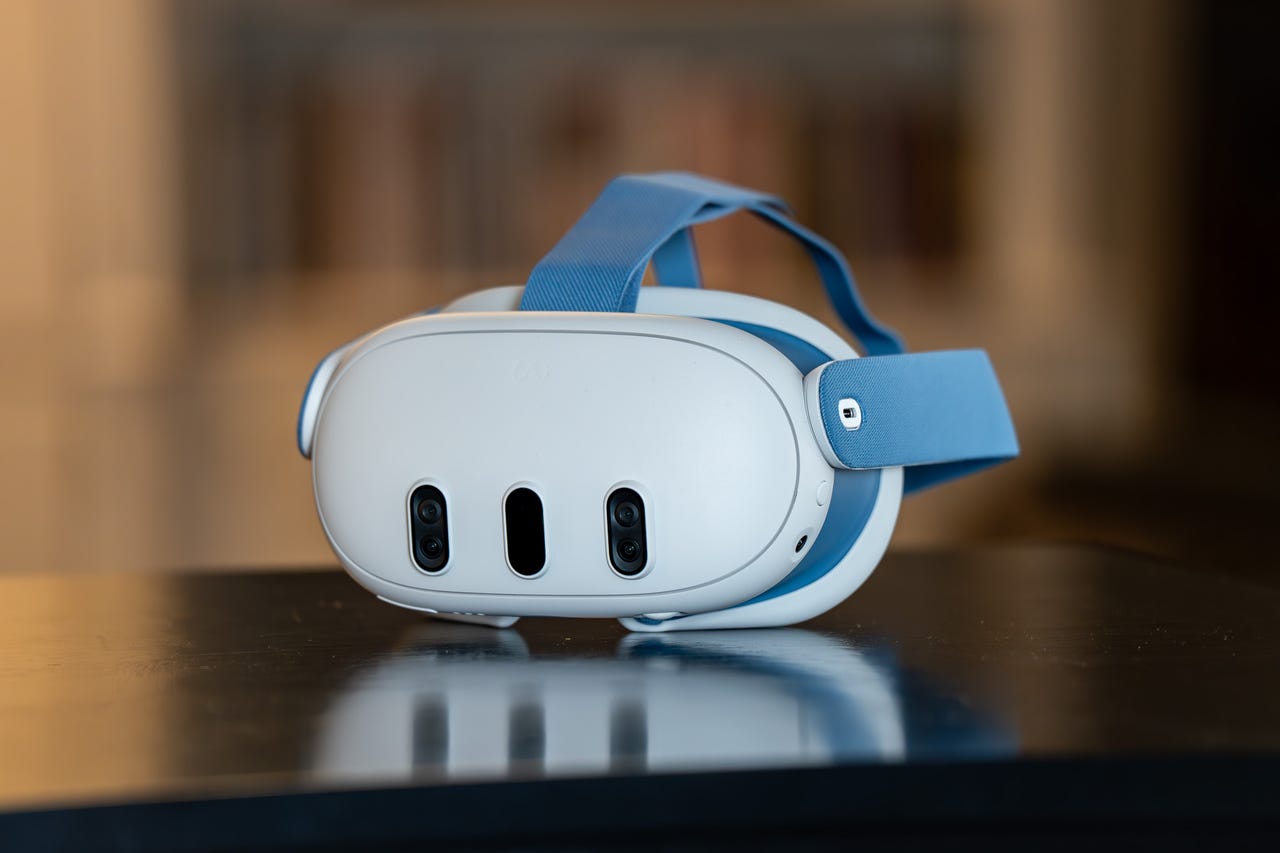
































Meta has been competing in the AR/VR hardware market for years. Now, the company is getting more ambitious: Meta wants to dominate the software platform side.
Also: The best VR headsets right now (and how Apple Vision Pro stacks up)
The tech giant announced on Monday that it has rebranded VR OS, its operating system that powers its Meta Quest headsets, to Meta Horizon OS. The company also said that the new operating system will now be available to third-party hardware makers, letting them power their mixed-reality headsets with its software.
"We chose this name to reflect our vision of a computing platform built around people and connection -- and the shared social fabric that makes this possible," Meta wrote in a blog post. "Meta Horizon OS combines the core technologies powering today's mixed reality experiences with a suite of features that put social presence at the center of the platform."
In addition to rebranding its operating system, Meta has changed the name of its Meta Quest Store -- the app marketplace for its headsets -- to the Meta Horizon Store. Meta also said that it plans to rebrand its Meta Quest mobile app, which Meta Quest headset owners use to stay social with those they interact with in the metaverse, to Meta Horizon. "It enables people's identities, avatars, and friend groups to move with them across virtual spaces and lets developers integrate rich social features into their apps," Meta said about its Horizon app.
Looking ahead, Meta plans to make it easier for developers to get in on the action as well. Meta said that it's developing a "spatial app framework" designed for mobile developers to port their apps to Horizon OS devices.
Also: Meta slashes the Quest 2's price again, dropping it to an all-time low
Meta has partnered with Asus and Lenovo on headsets that will be powered by Horizon OS. The company offered few details on the Asus and Lenovo headsets, and didn't say when the devices would hit store shelves, what they'll look like, and how much they'll cost. Meta added that it's also partnered with Microsoft's Xbox division on a limited edition Meta Quest "inspired by Xbox." Again, the company stopped short of sharing details on the device.
Meta has been in the mixed reality market for several years, competing with Samsung, Sony, and most recently, Apple. Until now, however, the company has focused on hardware. Making its operating system available to other companies enables Meta to create a new revenue stream and capitalize on third-party hardware. It could also pave the way for more devices, increasing the size of the AR/VR market itself.
Also: Meta Quest 3 review: The VR headset most people should buy in 2024
It's unclear how many hardware makers will ultimately want to useMeta'soperating system to power their devices. If Meta collects Horizon OS licensing fees, hardware vendors might balk at paying a competitor to help launch their headset.
Perhaps most importantly, questions remain about the long-term viability of mixed reality. While many major tech companies are bullish on the technology, there's no guarantee it'll take off and grow into a sizable market. Regardless, Meta is all in.
 Etiquetas calientes:
tecnología
Etiquetas calientes:
tecnología